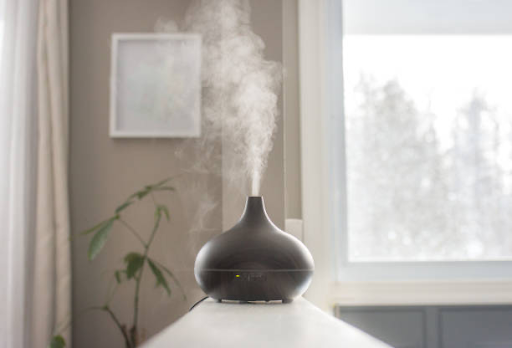When faced with sleepless nights, nature provides our greatest remedies-unknown
Our world today is filled with endless distractions, demanding schedules, and the constant buzz of technology. A peaceful night’s sleep can feel like a dream for many. Insomnia, restlessness, and sleep disorders have become all too common, leaving millions of individuals yearning for a remedy that doesn’t come in taking pills.
One such individual was Emma, a high-achieving professional who found herself wrestling with the relentless demands of her career. Her days were filled with lots of meetings, tight deadlines, and non-stop multitasking. She thrived on the challenges her job presented, but the transition from her high-energy workdays to restful nights proved to be an elusive feat. Emma’s mind, still racing from the day’s demands, left her restless, and she often found herself staring at the ceiling, unable to fall asleep.
The relentless demand of her job has caused her chronic sleep deprivation. Emma knew she needed a solution beyond relying on over-the-counter sleep aids, which left her feeling groggy and unrefreshed the next day. Desperation set in as she longed for the peaceful slumber that seemed to slip further from her grasp with each passing night.
Alarming Impact of Sleep Deprivation
In today’s fast-paced world, the quest for a good night’s sleep can feel elusive. Many of us suffer from various sleep disorders like Emma, and it is affecting our work, mood, and physical health. Fortunately, the keys to unlocking restful nights and revitalized mornings are often found in the embrace of nature itself. In this article, we will delve into the art of slumber and explore a range of natural remedies that can help you bid farewell to restless nights and embrace the profound benefits of rejuvenating sleep. From soothing herbal teas to the calming powers of aromatherapy and the profound impact of lifestyle adjustments, we will guide you through a holistic journey to improve your sleep quality.
According to Mental Health UK, it’s recommended that adults up to the age of 64 should aim for 7 to 9 hours of sleep per night. However, their latest findings show that Almost 1 in 5 people in the UK aren’t getting enough sleep, and 37% of adults cite work-related factors as the cause of their sleep deprivation. Records from the Centers for Disease Control and Prevention have it that about 1 in 3 adults in the United States reported not getting enough rest or sleep every day, and nearly 40% of adults report falling asleep during the day without meaning to at least once a month. This can lead to physical and mental health problems, injuries, loss of productivity, and even a greater likelihood of death.
Here, we will examine what sleeplessness is, explore its causes, analyze the consequences of sleep deprivation, emphasize the importance of sleep, and explore natural remedies that can help individuals achieve better sleep quality. Just as Emma transformed her sleep patterns with these remedies, you can also benefit from nature’s solutions for a restful night’s sleep.
Understanding Sleeplessness
Sleeplessness, also known as insomnia, is a sleep disorder characterized by difficulties falling asleep, staying asleep, or experiencing non-restorative sleep, which can lead to chronic sleep deprivation and various negative effects on a person’s physical and mental well-being. Common factors that contribute to poor sleep quality include:
- Stress and Anxiety: The modern world is filled with stressors that can disrupt sleep patterns.
- Poor Sleep Hygiene: Irregular sleep schedules and poor bedtime habits can negatively impact sleep.
- Diet and Nutrition: Consuming stimulants or heavy meals close to bedtime can hinder sleep.
- Lack of Physical Activity: A sedentary lifestyle can lead to sleep problems.
- Environmental Factors: Noisy, bright, or uncomfortable sleeping environments can disrupt sleep.

Consequences of Sleep Deprivation
Sleeplessness can take a significant toll on your physical and mental well-being. The consequences of sleep deprivation include but not limited to:
- Daytime Fatigue: Sleepless nights lead to daytime drowsiness and reduced productivity.
- Mood Disturbances: Irritability, mood swings, and even depression can result from poor sleep.
- Cognitive Impairment: Memory problems and reduced cognitive function can be consequences of sleep deprivation.
- Weakened Immune System: A lack of sleep can compromise your body’s ability to fend off illnesses.
- Chronic Health Issues: Sleeplessness has been linked to chronic conditions like obesity, diabetes, and heart disease.

Importance of sleep
Sleep is essential for overall well-being, and its importance cannot be overstated. Here are some key aspects of why sleep is crucial:
- Physical Health:.
o Cellular Repair: During deep sleep, the body engages in repair and growth processes. Tissues are repaired, muscle mass is built, and the immune system is strengthened.
o Heart Health: Adequate sleep is linked to lower blood pressure and a reduced risk of heart diseases.
o Metabolic Health: Quality sleep is associated with improved insulin sensitivity, reducing the risk of diabetes.
- Mental Health:
o Emotional Well-Being: Sleep plays a crucial role in emotional regulation. Chronic sleep deprivation is linked to mood disorders, including depression and anxiety.
o Cognitive Function: Sleep is necessary for memory consolidation, problem-solving, and decision-making. It enhances creativity and overall cognitive performance.
o Stress Reduction: Adequate sleep helps reduce stress levels and enhances the brain’s ability to cope with challenges.
- Immune System:
Sleep is essential for the proper functioning of the immune system. During deep sleep, the body produces and releases cytokines, proteins that aid in fighting infections.
- Learning and Memory:
Sleep, particularly REM (Rapid Eye Movement) sleep, is critical for learning and memory consolidation. It helps in the formation and retention of new information.
- Safety:
Lack of sleep impairs reaction times, decision-making, and situational awareness, increasing the risk of accidents, both on the road and in the workplace.
In essence, sleep is the body and mind’s time to rest, recharge, and rejuvenate. It is a fundamental pillar of health, and neglecting it can lead to a host of physical, mental, and emotional problems. Prioritizing good sleep hygiene and addressing sleep-related issues is crucial for leading a healthy, fulfilling life.

Natural Remedies for Better Sleep
Fortunately, nature offers an abundance of remedies to improve your sleep quality. These remedies can be easily incorporated into your daily routine to help you get those restful nights you deserve:
- Herbal Teas: Chamomile, valerian root, and lavender teas have calming properties that can promote relaxation before bedtime.
- Aromatherapy: Essential oils like lavender, cedarwood, and bergamot can be diffused or applied to your pillow to create a soothing sleep environment.
- Magnesium Supplements: Magnesium helps relax muscles and can improve sleep quality. Consult with a healthcare professional before starting any supplements.
- Bedtime Rituals: Establish calming bedtime rituals like reading a book, taking a warm bath, or practicing gentle yoga stretches.
- Limit Screen Time: The blue light emitted by screens can interfere with your circadian rhythm. Avoid screens at least an hour before bedtime.
- Diet Adjustments: Consume a light, balanced dinner and avoid caffeine and heavy, spicy, or sugary foods close to bedtime.
- Physical Activity: Regular exercise can promote better sleep. Aim for at least 30 minutes of moderate activity most days.
- Sleep Environment: Create a comfortable, dark, and quiet sleeping space. Invest in a comfortable mattress and pillows.
- Mindfulness and Relaxation Techniques: Practice meditation, deep breathing exercises, or progressive muscle relaxation to calm your mind and body.
- Limit Naps: While short power naps can be refreshing, avoid long naps during the day to prevent sleep disruption at night.
Incorporating these natural remedies into your daily life can pave the way to restful nights and improve overall well-being.

In a Nutshell
The quest for better sleep doesn’t have to be a daunting one. By understanding the causes of sleeplessness, acknowledging the consequences of sleep deprivation, and embracing natural remedies, you can transform your sleep patterns and wake up refreshed and revitalized. At Balance of Creation, we encourage you to embrace Nature’s offer toward a gentle and effective path to a restful night. Remember, when faced with sleepless nights, nature provides our greatest remedies!






